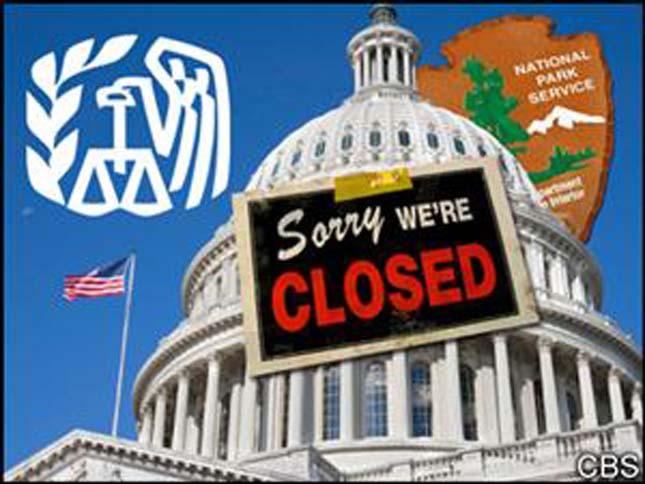As the cradle of U.S. politics, the whole of DC is biding its time and bracing itself for the imminent government shutdown. Although there’s still a chance to avoid the freeze, the odds are slim that Congress will be able to reach a consensus on the allocation of the 2011 federal budget before Friday’s midnight deadline. While it’s clear that a shutdown is looming around the corner, in these days of fractured parties it’s still uncertain how long it would last and how exactly it would affect the lives of DC residents.
Most noticeably, DC’s trash collection, street sweeping services, libraries and the DMV would close. Museums such as the different branches of the Smithsonian Institution along the Mall and the National Zoo would also shut down. Luckily, the animals in the zoo would continue to be cared for, fed and guarded during the shutdown, and private museums such as the Newseum would remain open.
It is currently unsure whether or not the National Cherry Blossom Festival would continue – festival organizers are trying to come up with a plan that will allow the events, such as Saturday’s parade, to take place as planned. Without federal funding, however, the festival must support its own cost of operations.
Because this shutdown is happening during tax season, it will have a larger impact on the IRS than shutdowns have in the past. The IRS will run on minimum staff for the duration of the suspension, meaning that tax returns filed online would be filled but those sent via snail-mail would remain unopened for an indefinite period of time. This does not mean, however, that you can file your taxes late without getting fined – they’re still due April 18.
Money and services from Medicare, Medicaid, Social Security and the Veteran’s Administration would be given out to those who were receiving assistance before the shutdown. Because of trimmed-back staff, however, new requests to these programs could go unanswered and become backlogged until the governmental hiatus is lifted. A backlog of federal loans could also occur. The Federal Housing Administration stated that federal home loan guarantees would be withheld and it is likely that requests for federals student loans would be postponed as well. Federal funding for unemployment programs could be stopped, leaving state governments to continue providing support for the unemployed on their own. Similarly, the shutdown could delay grants for research and police training.
The police forces that have already been trained would, however, continue to perform their duties as will jail systems and the court system although some cases, such as those concerning child support or bankruptcy, may be stalled. Agencies that protect homeland security such as the U.S. Coast Guard and security guards at airports would also continue their work, although many of their workers would have to go unpaid. Individuals trying to get new passports would also be affected, as they would have to wait until the shutdown ended to register for one.
Government websites that aren’t “essential” wouldn’t be updated, possibly because government workers in “unnecessary” positions would get an unexpected vacation as they wouldn’t have to go to work during the shutdown. They also, unfortunately, wouldn’t get paid for the duration of time that the hiatus lasts. After the 1995 shutdown these workers were reimbursed, but it’s still unclear whether or not that would happen at this time.
Some things, however, would remain the same. Public schools, for instance, would continue all of their services including providing lunches for students. NASA would continue to prepare for the April 29 launch of Endeavour, the military would continue to perform its duties unfazed and the U.S. Postal Service, true to form, would carry on delivering the mail.


